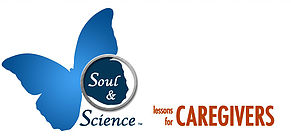VIDEOS

This talk was given at a local TEDx event, produced independently of the TED Conferences. Paul Rosen, MD, a pediatric rheumatologist, serves as the Clinical Director of Service and Operational Excellence at Nemours. He received a masters of public health degree from Harvard University and a masters of medical management degree from Carnegie Mellon University. He was named ‘One of the First 100 Innovators’ by the U.S Federal Government Agency for Healthcare Research and Quality. Dr. Rosen’s interests include patient-physician communication, family-centered care, and the patient experience. He teaches medical students about improving the patient experience, and he serves as the faculty mentor for the physician executive leadership program for medical students at Jefferson Medical College. He is also a volunteer faculty member at University of Central Florida College of Medicine.
Paul Rosen, MD, a pediatric rheumatologist, serves as the Clinical Director of Service and Operational Excellence at Nemours. He received a masters of public health degree from Harvard University and a masters of medical management degree from Carnegie Mellon University. He was named ‘One of the First 100 Innovators’ by the U.S Federal Government Agency for Healthcare Research and Quality. Dr. Rosen’s interests include patient-physician communication, family-centered care, and the patient experience. He teaches medical students about improving the patient experience, and he serves as the faculty mentor for the physician executive leadership program for medical students at Jefferson Medical College. He is also a volunteer faculty member at University of Central Florida College of Medicine.
TEDxYouth@Pittsburgh
A TED talk introducing the concept of asking open-ended questions. Geared towards teachers, it is useful for all professions.
Modern medical practices have resulted in astonishing advances in cure rates for some of the most challenging forms of disease. Yet, many patients feel neglected, disrespected and unsupported in their journey as a patient.
In this talk, Prof. David Joske argues that quality of life is a too-often overlooked consideration for how best to treat patients. He outlines his experience of leading a hospital-based cancer support service that provides free complementary therapies to patients and their carers. He argues that although this service does not provide a cure, the benefit for the patients cannot be overlooked.
Professor David Joske’s vision is to “re-humanise” modern cancer care. He strives for all cancer patients to have an open-minded team supporting them to feel empowered to tackle their illness in their own way. As Head of Haematology at Sir Charles Gairdner Hospital (since 1994), his clinical and research interests include the treatment of lymphomas, palliative care in haematology and supportive care in cancer.
With more than 50 peer-reviewed publications in medical literature, he is the founder and chairman of the SolarisCare Foundation, which administers over 7,000 complementary therapy treatments to Western Australian cancer patients annually. A John Curtin Medallist and a three-time Australia Day Council Australian of the Year finalist, David’s dream is to re-establish supportive communities for cancer patients.
